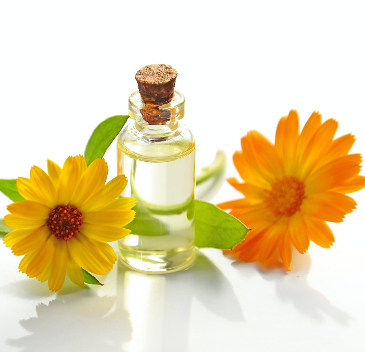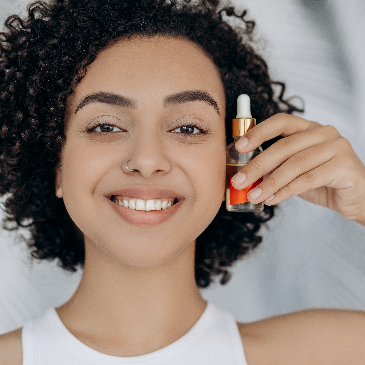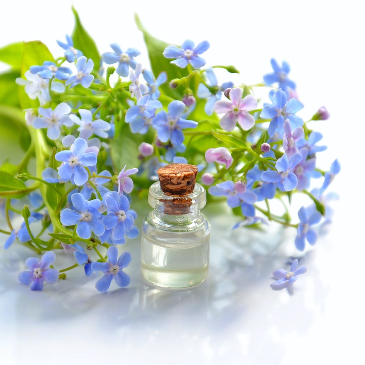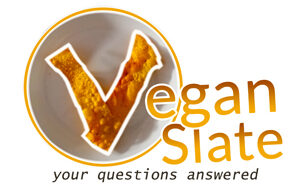Veganism is more than just a diet, it’s a lifestyle choice based on the principle of avoiding all forms of animal exploitation. This includes abstaining from buying clothes, cosmetic products, accessories and other goods that are made at the expense of animals.
The question “are essential oils vegan” is one often asked in the vegan forums online. Renowned for their multitude of healing & wellness benefits and naturally extracted from plants, surely they must be vegan, right? Let’s find out.
Are Essential Oils Vegan?
Yes, more often than not essential oils are vegan friendly but not always. You should be sure to read the label or ask questions of the company you’re buying from before handing over the cash. Some suppliers will use animal based ingredients and others will test on animals or buy in ingredients which have been tested on animals.
Watch: Sandra from Mudbrick Herb Cottage on making calendula oil
(comprehensive instructions on making this soothing, healing oil)
What Defines a Food or Product as Vegan?
Millions of people around the world identify as vegan for various reasons: ethical concerns, environmental considerations, or even health benefits. Although in reality you can only be vegan for ethical reasons, the definition has become blurred in recent years.
Of course, everyone’s journey is unique but true vegans abstain from all forms of animal exploitation, not just in their diet alone.
This means that any products that contain animal-derived ingredients or have been tested on animals are off-limits. You’d be surprised at how many goods are made at the expense of animals, like household soaps, furniture, and even certain types of paint & adhesives.
A vegan product implies that it does not contain any animal-derived ingredients and has not been tested on animals. So, how do essential oils measure up?
Care products, like essential oils, often contain hidden animal derivatives like lanolin, collagen, or beeswax. For this reason it’s important to identify the ingredients in your chosen product.
Lanolin comes from wool bearing animals; usually sheep. It is a waxy substance secreted from the oil glands of the animal. Farmers would argue it’s a natural byproduct of the sheep rearing process but it’s definitely out for vegans.
Collagen is the most plentiful protein in mammals and is the primary component of connective tissues in the body. While vegan friendly collagen is available, most collagen added to care products like essential oils are definitely not vegan.
Beeswax is another controversial one for vegans. Some people don’t have a problem with beeswax and other vegans reject it outright. This is a pretty deep rabbit hole when you look into it and our article entitled: “Is Opposing Migratory Beekeeping Vegan Hypocrisy” is an attempt to explain!
What are Essential Oils?
Essential oils are highly concentrated plant extracts, capturing the essence and aroma of their source. They’re obtained through various methods like steam distillation and cold-pressing, and used in aromatherapy, skincare, and natural remedies.
 When Are EOs Vegan?
When Are EOs Vegan?
In their purest form, essential oils should only contain the extract of the plant they are sourced from. In some cases, certain oils may be diluted with carrier oils like jojoba or coconut oil. Even in this form, essential oils are 100% vegan.
But in some cases, they’re not. Some suppliers may add fragrance enhancers made from non-vegan ingredients like beeswax or animal-derived musks, especially in perfumery. It’s essential to read labels and research products to ensure they meet vegan standards.
The Issue of Animal Testing in Essential Oils
Animal testing is a significant concern in the cosmetics and wellness industry, and essential oils are not absent from that concern. Some companies test their products or ingredients on animals.
While this practice is increasingly frowned upon and even banned in many regions, if you’re shopping online or in-store for these aromatherapy oils, you need to make sure they have an animal testing policy.
Between 1993 and 2013 the European Union, slowly but surely, introduced more and more strict laws on animal testing in the cosmetics sector. As of 2013 it is no longer legal to sell or market any cosmetic product “where the finished product or ingredients have been tested on animals”.
There are some exceptions in rare circumstances but 99.9% of cosmetics you’ll find in European stores are cruelty free … allegedly!
The madness around the Brexit debacle here in the UK saw a previous home secretary, Priti Patel, flirt with the idea of reintroducing animal testing but was met with huge resistance. Patel’s renowned empathetic stance earned her a reputation other right wing lunatics would die for.
Thankfully we saw sense!
The US is catching up with Europe and as of 2022 at least 10 states have passed laws addressing the issue, banning the testing of cosmetics on animals.
The recognition of animals as sentient, feeling beings is becoming more prevalent across the globe … there is still some way to go but the vegan movement is making ever bigger waves.
How to Find Vegan Essential Oils
Reading and Understanding Labels
 Labels can often be confusing, with terms like ‘natural’, ‘organic’, and ‘cruelty-free’. These are often buzzwords used as a marketing tactic, and can mask a deeper-rooted issue under the surface.
Labels can often be confusing, with terms like ‘natural’, ‘organic’, and ‘cruelty-free’. These are often buzzwords used as a marketing tactic, and can mask a deeper-rooted issue under the surface.
A product labeled as ‘vegan’ should contain no animal-derived ingredients. Look out for certifications from organizations like The Vegan Society or PETA, indicating the product meets specific vegan and cruelty-free criteria.
Researching Essential Oil Brands
These oils have an incredible array of healing powers, from treating headaches to helping you sleep better at night. But just because they offer all of these great benefits, does not mean that they’re worth an animal’s life. If you’re committed to using them, spend time researching brands until you are absolutely sure of its vegan-friendly status.
Some reputable vegan-friendly essential oil brands include Eden’s Garden, Aura Cacia, and Herb Cottage. Remember, a brand’s commitment to being cruelty-free is as crucial as its vegan claim.
Making Your Own Vegan Essential Oils
The Basics of DIY Essential Oils
If you’d prefer to make your own EOs to ensure they’re vegan, go right ahead! Though it requires some equipment and even more patience, it can be an enriching experience that helps you learn & heal, all without risking the safety of any animals.
Vegan EO Blend Recipes
Creating your own essential oil blends at home allows for customization. Here’s what you’ll need to get started:
Equipment
- A large pot with lid
- A smaller heat-proof bowl
- Distilled water
- Ice cubes
- Airtight, dark glass container to store the essential oil
Instructions:
- Fill the larger pot halfway with distilled water and place the smaller bowl in the center.
- Add your choice of herbs around the bowl, in the water. Choose from lavender flowers, rosemary sprigs, or another of your favorite herbs.
- Cover the pot with its lid upside down, then put ice cubes on the lid.
- Heat the pot on low heat.
- The condensation of the steam from the lavender flowers will collect on the lid, drip down to the handle, and fall into the smaller bowl.
- The water in the small bowl will be lavender essential oil and hydrosol. The oil will float on the top.
- Carefully separate the oil from the water. Store it in the dark airtight glass container.
 Conclusion
Conclusion
While most essential oils are naturally vegan, it’s vitally important to pay attention to labels, potential non-vegan additives, and a brand’s stance on animal testing. Making conscious, informed choices aligns with the vegan philosophy, promoting cruelty-free practices within the essential oil industry.
I hope this article has helped to answer your question today. Your sharing on the socials is always appreciated (use the buttons below). If you have any thoughts or questions to ask please leave a comment below … we always reply.
Just to finish up, if you like the content we publish, why not sign up to our new post alerts mailing list? We’ll email you when there’s fresh material published and we never spam … it’s not vegan.
Thanks for reading and have a peaceful day.
Rohan.
